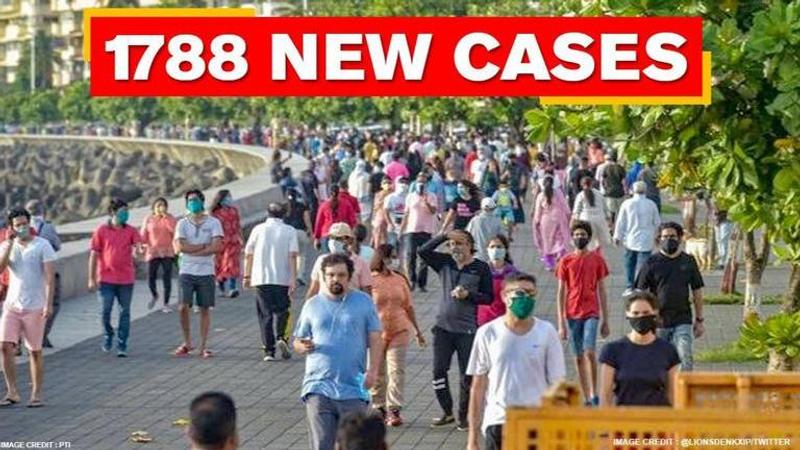Published 23:29 IST, September 7th 2020
Mumbai sees 1788 new COVID cases; city's doubling rate reduces to 67 days
As India registers new Coronavirus (COVID-19) peaks daily, Mumbai's cases too soared with 1788 new cases and 31 new deaths on Monday. The city saw 1541 cured

As India registers new Coronavirus (COVID-19) peaks daily, Mumbai's cases too soared with 1788 new cases and 31 new deaths on Monday. The city also saw 1541 new recoveries taking its cured tally to 1541. Mumbai - which now lags behind Pune as the worst affected district - has 1,57,410 cases of which 24,144 cases are active while 7897 have succumbed to the virus.
Mumbai: 1788 new COVID cases
Mumbai's recovery rate dropped to 79% now while its growth rise has soared again to 1.03%. BMC reported that 8,34,344 samples have been tested till date with an 18.65% positivity rate. As per BMC's war room report, 99 of 931 ventilator beds were vacant, while 159 of 1399 ICU beds were vacant.
Testing rates slashed
With the testing kit production cost falling after Maharashtra eased lockdown norms, the charges for picking test samples from collection sites have been reduced to Rs 1,200 from Rs 1,900 (which was fixed last month) by the state government. Collecting samples from kiosks, COVID-19 care collection centres, hospitals, clinics, quarantine centres of laboratories will now cost Rs 1,600 as against Rs 2,200 earlier. The fees for collecting patient samples from his/her residence, their transport, testing and reporting of samples has been slashed to Rs 2,000 from Rs 2,500, the government said.
The government said the revised charges are inclusive of all taxes. The government took the step after a committee set up by it to decide the rates charged by private laboratories submitted its report. No private laboratory can charge patients beyond these rates, the government clarified.
Mumbai's COVID crisis
With Maharashtra extending its lockdown, the BMC has increased its containment zones to 573, while over 6825 buildings and chawls have been sealed and are being self-managed by the society. While slums were initially where most cases were found, BMC claims that most cases were now found in housing societies. The recent BMC report shows Borivali as the most affected place with the doubling rate at 45 days, while Masjid is the least affected ward with a doubling rate at 100 days. Overall, Mumbai's doubling rate at 67 days is higher than the national average of 30 days.
Updated 23:29 IST, September 7th 2020




